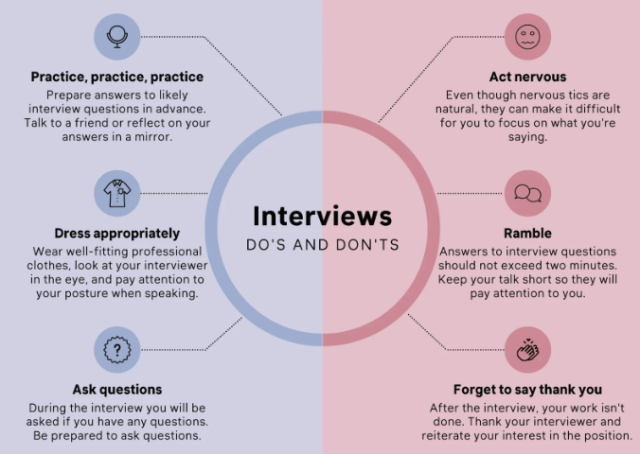Skill Up, Stay Ahead: Future-Proof Your Career with Top 10 In-Demand Skills
By: Javid Amin
The once-familiar landscape of the job market is undergoing a dramatic transformation. Technological advancements are automating tasks, reshaping industries, and creating entirely new fields. In this dynamic environment, the key to career success lies in future-proofing your skillset. This comprehensive guide equips you with the knowledge and resources to master the top 10 in-demand skills for the future of work.
The Evolving Job Market: A Catalyst for Skill Development
Gone are the days of a static career path. Today’s job market demands continuous learning and adaptation. Here’s why mastering new skills is crucial:
- Agility in a Changing World: With rapid advancements, the ability to adapt to new technologies and methodologies is essential. Future-proof skills ensure you remain relevant and valuable in your field.
- Increased Employability: Employers actively seek candidates who demonstrate a commitment to lifelong learning and continuous skill development. Mastering in-demand skills strengthens your resume and makes you a more attractive candidate.
- Career Growth Trajectory: New skills unlock doors to exciting opportunities. They can pave the way for promotions, leadership roles, and even career transitions into new and emerging fields.
- Enhanced Job Security: In a world increasingly reliant on automation, possessing invaluable skillsets protects you from job displacement. Future-proof skills make you a vital asset in a tech-driven workforce.
Top 10 In-Demand Skills: Mastering the Tools for Success
1. Data Analysis: Unlocking Insights from the Information Age
Importance: In the era of big data, understanding how to collect, analyze, and interpret complex data sets is an invaluable skill. Businesses across industries rely on data-driven insights to make informed decisions.
How to Learn:
- Online Courses: Platforms like Coursera, edX, and Udacity offer comprehensive courses in data analysis, statistics, and data visualization.
- Certifications: Consider pursuing certifications like Google Data Analytics Professional Certificate, Microsoft Certified Data Analyst Associate, or Certified Analytics Professional (CAP).
- Hands-on Experience: Gain practical experience by working on real-world data projects. Participate in online data hackathons or volunteer your data analysis skills to a non-profit organization.
2. Artificial Intelligence (AI): Embracing the Power of Intelligent Systems
Importance: AI is transforming industries, from automation and robotics to healthcare and finance. Expertise in AI is crucial for developing intelligent systems and solutions.
How to Learn:
- Online Courses: Platforms like Coursera and deeplearning.ai offer courses on machine learning, deep learning, and artificial intelligence fundamentals.
- Certifications: Enhance your resume with certifications like IBM AI Engineering Professional Certificate or Google AI certifications.
- Hands-on Experience: Build your own AI projects using frameworks like TensorFlow or PyTorch. Contribute to open-source AI projects on platforms like GitHub.
3. Digital Marketing: Navigating the Online Landscape
Importance: Digital marketing is the cornerstone of modern business success. With the increasing reliance on online platforms, professionals skilled in digital marketing are in high demand. This skillset encompasses a wide range of competencies, from SEO and content creation to social media management and paid advertising.
How to Learn:
- Online Courses: Platforms like HubSpot Academy, Google Skillshop, and Udemy offer comprehensive digital marketing courses.
- Certifications: Consider certifications like Google Ads, Facebook Blueprint, or HubSpot Inbound Marketing Certification.
- Hands-on Experience: Start a personal blog or manage social media accounts for a small business. Experiment with different digital marketing strategies and analyze the results.
4. Cybersecurity: Safeguarding the Digital World
Importance: As cyber threats become increasingly sophisticated, the demand for cybersecurity professionals is skyrocketing. Organizations of all sizes need skilled individuals to protect their digital assets and mitigate risks.
How to Learn:
- Online Courses: Platforms like Coursera, Udemy, and Cybrary offer a variety of cybersecurity courses, covering topics from network security to ethical hacking.
- Certifications: Industry-recognized certifications like CompTIA Security+, Certified Information Systems Security Professional (CISSP), and Certified Ethical Hacker (CEH) can significantly boost your career prospects.
- Hands-on Experience: Participate in online cybersecurity challenges and competitions. Volunteer for cybersecurity initiatives or internships to gain practical experience.
5. Cloud Computing: Harnessing the Power of the Cloud
Importance: Cloud computing has revolutionized how businesses operate, offering scalability, flexibility, and cost-efficiency. Professionals with expertise in cloud platforms like Amazon Web Services (AWS), Microsoft Azure, and Google Cloud Platform are highly sought after.
How to Learn:
- Online Courses: Cloud providers offer comprehensive training programs and certifications.
- Certifications: Obtain certifications like AWS Certified Solutions Architect, Microsoft Certified: Azure Administrator Associate, or Google Cloud Certified Professional Cloud Architect.
- Hands-on Experience: Create cloud-based projects, experiment with different cloud services, and stay updated with the latest industry trends.
6. Programming and Software Development: Building the Future
Importance: Programming skills are essential for building software applications, websites, and digital products. Proficiency in languages like Python, Java, and JavaScript opens up a wide range of career opportunities.
How to Learn:
- Online Courses: Platforms like Codecademy, freeCodeCamp, and Udemy offer interactive coding tutorials.
- Coding Bootcamps: Immerse yourself in intensive programming bootcamps to accelerate your learning.
- Personal Projects: Build your own projects to apply your coding skills and create a portfolio of your work.
7. Project Management: Delivering Successful Outcomes
Importance: Effective project management is crucial for the success of any organization. Project managers oversee projects from initiation to closure, ensuring they are completed on time, within budget, and meet the desired quality standards.
How to Learn:
- Online Courses: Platforms like Coursera and Udemy offer project management certifications and training.
- Certifications: Consider certifications like Project Management Professional (PMP) or Agile Certified Practitioner (ACP).
- Hands-on Experience: Volunteer for project management roles in your organization or community. Utilize project management tools like Trello, Asana, or Jira to gain practical experience.
8. UX/UI Design: Creating Exceptional User Experiences
Importance: User experience (UX) and user interface (UI) design are essential for creating products and services that people love. UX/UI designers focus on creating intuitive and visually appealing interfaces that meet user needs.
How to Learn:
- Online Courses: Platforms like Udemy, Coursera, and Interaction Design Foundation offer UX/UI design courses.
- Design Tools: Learn to use design software like Adobe XD, Figma, or Sketch.
- Portfolio Building: Create a portfolio showcasing your design projects to demonstrate your skills to potential employers.
9. Financial Management: Making Sound Financial Decisions
Importance: Understanding financial concepts and principles is crucial for both personal and professional success. Financial management skills are in high demand across various industries.
How to Learn:
- Online Courses: Platforms like Coursera and edX offer courses in financial management, accounting, and investment.
- Certifications: Consider certifications like Certified Management Accountant (CMA) or Chartered Financial Analyst (CFA).
- Personal Finance: Manage your personal finances effectively to gain practical experience in budgeting, saving, and investing.
10. Communication and Collaboration: Building Strong Relationships
Importance: Effective communication and collaboration are essential for success in any role. These soft skills are highly valued by employers and contribute to a positive work environment.
How to Learn:
- Communication Workshops: Attend workshops or seminars on public speaking, active listening, and negotiation.
- Team Projects: Collaborate with others on projects to enhance your teamwork and communication skills.
- Feedback: Seek feedback on your communication style and actively work on improving your skills.
Bottom-Line: Investing in your skill development is an investment in your future. By mastering these in-demand skills, you can position yourself for career growth, increased job security, and greater opportunities. Remember, continuous learning is key to staying ahead in the ever-evolving job market.
Disclaimer: The mention of specific online learning platforms in this article is for illustrative purposes only and does not constitute an endorsement. The choice of learning platform should be based on individual preferences, learning styles, and budget.




